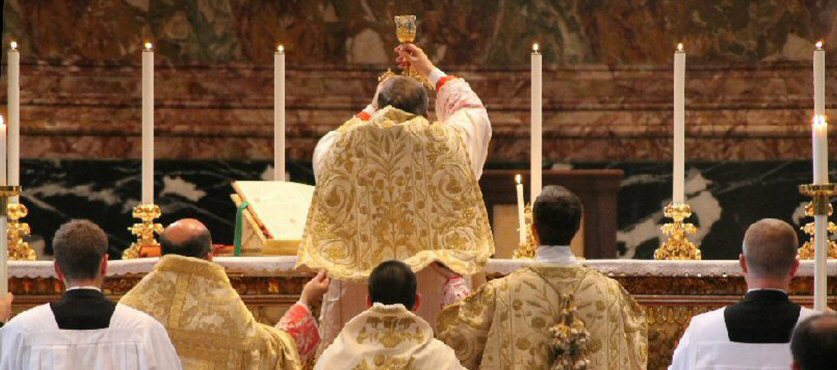Fr. Fidenzio Volpi and His Numbers
The Commissary of the institute of the Franciscan Friars of the immaculate, Fr. Fidenzio Volpi is an imperious and impulsive personage, who in his furious rants often blurts out numbers of the Code of Canon Law. On the website of the Franciscans of the Immaculate, Fr. Volpi has published an official note of clarification in which he threatens to take every legal action to uphold the honor of the institute, of all its members, as well as my person either in the canonical sphere, as in the sphere of the state penal code for an article by Luisella Scrosati which he disliked titled Liberty and Person.
In this article, which defends Catholic journalists and writers from the inconsiderate attacks posted on mediatrice.net, Luisella Scrosati presents an objective fact: per the decision of commensary Volpi, the founder of the Franciscans of the Immaculate, Fr. Stefano Manelli has been confined to the Diocese of Cassino. Scrosati adds, its reminds us of Padre Pio, the teacher of Fr. Stefano, who also was accused by various confreres and persecuted by the church hierarchy but defended by many devoted and courageous laypersons.
Scrosati connects the provisions against Fr. Manelli to Canon 1337 of the Code of Canon Law which provides for isolation in a diocese as an expiatory punishment for a crime. However, Fr. Volpi defines this connection as false and absent of any truth.
The Commissary says that the provisions taken towards the Franciscan Religious falls under the normal administrative functions attributed to me in virtue of my charge which I am executing per the directives of the holy sea. This clarification, however, makes the responsibilities of Fr. Volpi all the more grave. If Fr. Manelli were to have been disciplined based on Article 1337, he would have to have been guilty of a crime and the Commissary would have had to explain which one.
Instead, Fr. Manelli has been relegated to a domicile by force, without a related Canon to justify such an action. If the domicile is the conventual house in which he usually lived, was there a need to take up a new disciplinary action? The fact is that while Fr. Manelli was free to move about beforehand, now he may do so only after explicit authorization. It is, in fact, a case of house arrest; or, in other words, freedom with surveillance, for which Fr. Volpi cannot cite a number from Canon Law.
Not happy, the Commissary sent a letter to Cardinal Braz de Aviz, prefect of the congregation for religious, to complain about the behavior of some collaborators of the same Cardinal Prefect. In the letter immediately circulated with shock within the congregation the Commissary goes so far as to reproach Cardinal Braz de Aviz for not being sufficiently repressive towards the Franciscan Sisters of the Immaculate, and towards the two visitors whom by charge of the congregation participated in the Extraordinary Chapter of the Sisters which took place September 23rd 2013.
In that Chapter, the Franciscan Sisters re-vindicated their autonomy from the dissident Friars of the Immaculate in conformity with their own constitutions and directory. Fr. Volpi evokes number 583 of the Code of Canon Law to proclaim the nullification of the deliberations undertaken by the sisters. He accuses the visitors to not have fulfilled their obligations of control.
The Code of Canon Law, however, has many Canons, of with number 578. According to this Canon, the members of an institute have the right and the obligation to faithfully guard the intents and the projects of the founders, which in the case of the Franciscan Sisters is Fr. Manelli whom by admission of Fr. Volpi is guilty of nothing. Canon 580 assures religious institutes just autonomy of life especially of governance necessary to their life. This is the same autonomy which the despotic Commissary would deny the Friars and the Sisters to transform their convents into prisons.
E.B.
